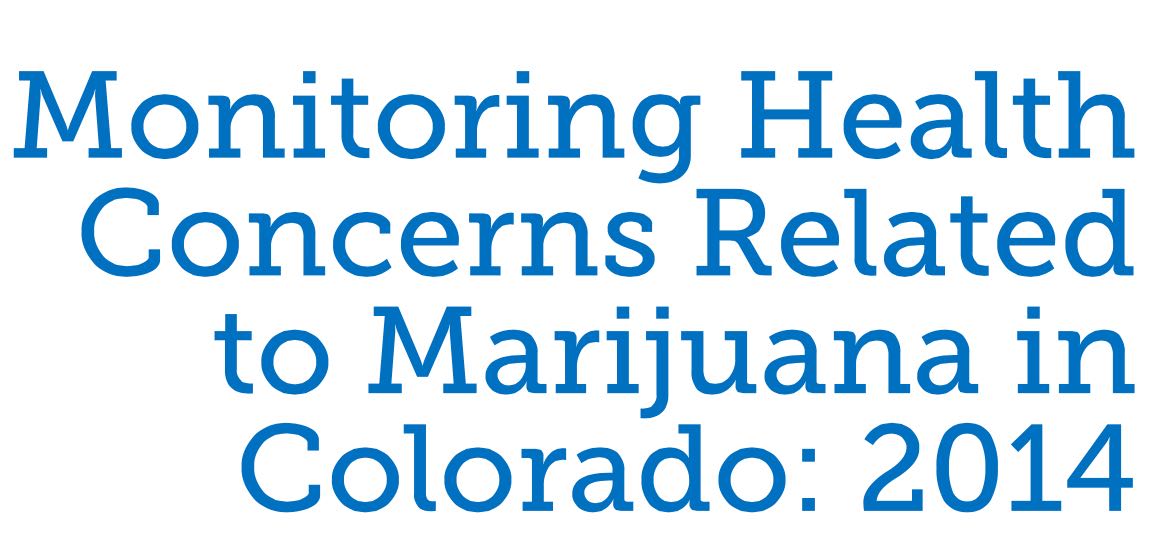I am honored to have been asked to serve on an advisory committee of the Colorado Department of Public Health and the Environment, which has issued a voluminous report detailing the real and possible impacts of cannabis use on health.
“Monitoring Health Concerns Related to Marijuana in Colorado: 2014” provides a detailed look at “changes in marijuana use patterns, systematic literature review and possible marijuana-related health effects.” There is also an appendix.
There are many important issues and scientific findings in this report to note — several of which have been addressed here on DrThurstone.com and already have been outlined in an excellent review of the medical literature on marijuana’s health effects, conducted by top scientists at the National Institute on Drug Abuse and Health and published in The New England Journal of Medicine in June 2014. (For reference, please see: Adverse Health Effects of Marijuana Use, by Nora D. Volkow, M.D., Ruben D. Baler, Ph.D., Wilson M. Compton, M.D., and Susan R.B. Weiss, Ph.D., published online June 4, 2014 in The New England Journal of Medicine.)
Committee members categorized research evidence as “substantial,” “moderate,” “limited,” “mixed,” and “insufficient” — and also provided definitions of each category (see pages 70 and 71). When reviewing these findings, it’s important to remember the old saying, “The absence of evidence is not evidence of absence.”
Among the standout findings contained in the Colorado report:
– “Based on several review papers, it is estimated that there is a twofold increase in the risk of an accident if there is any measurable amount of THC in the bloodstream. (Emphasis mine.)” The report also states, “We found SUBSTANTIAL evidence for meaningful driving impairment in occasional users with whole blood THC of 2-5 ng/mL.” This calls into serious question the state legislature’s decision to set the marijuana-impairment level for drivers at 5 nanograms per milliliter of whole blood.
– Public health statements are plain language translations of the major findings (Evidence
Statements) from the systematic literature reviews. These statements have been officially approved by the Retail Marijuana Public Health Advisory Committee regarding marijuana use and adolescent health:
1. Regular marijuana use by adolescents and young adults is associated with impaired learning, memory, math and reading achievement, even 28 days after last use.
a. These impairments increase with more frequent marijuana use.
2. Regular marijuana use by adolescents and young adults is strongly associatedwith developing psychotic symptoms and disorders such as schizophrenia in adulthood.
a. This risk is higher among those who start using marijuana at a younger age.
b. This risk is higher with more frequent marijuana use.
3. Marijuana use by adolescents and young adults -even occasional use – is associated with future high-risk use of alcohol, tobacco, and other drugs like cocaine, ecstasy, opioids and methamphetamine.
4. Starting marijuana use during adolescence or young adulthood is associated with future marijuana addiction.
5. Marijuana use by adolescents may be associated with low academic achievement,such as not graduating from high school or attaining a university degree, lower income, and more unemployment.
6. There is conflicting research for whether or not marijuana use by adolescents and young adults is associated with depression, anxiety or suicidal thoughts.
The committee also approved these statements regarding marijuana’s neurological, cognitive and mental health effects
1. Heavy use of marijuana (defined as use 5-7 days a week) is associated with impaired memory, persisting a week or more after quitting.
2. Use of THC, a component of marijuana, can cause acute psychotic symptoms during intoxication.
3. Regular use of marijuana (defined as 1-4 days per week) is associated with depression and may be associated with other mental health disorders such as anxiety and psychosis.



We welcome all thoughtful comments, but please abide by our commenting rules